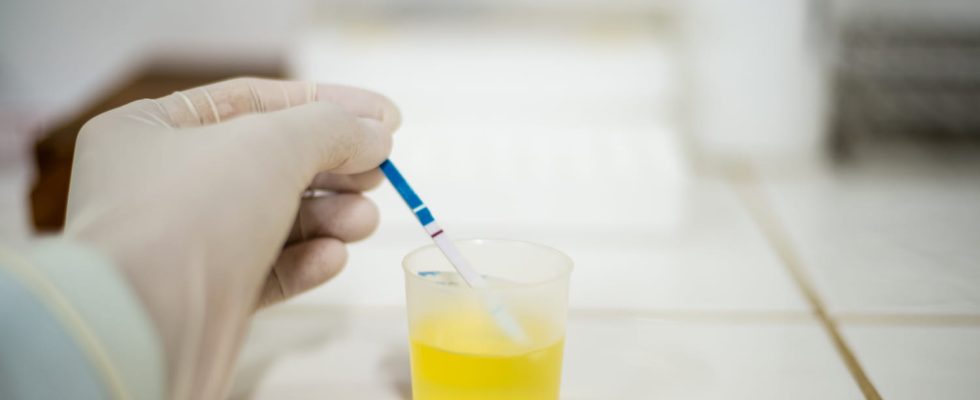From the Greek “pyuria”, pyuria means the presence of pus in the urine. It is authenticated by the presence in the urine of altered leukocytes. It is the sign of all infections of the urinary excretory tract. Explanations with Dr. Nathalie Berrogain, urological surgeon in Toulouse.
What is the definition of pyuria?
“Pyuria refers to a inflammatory reaction and the presence of altered leukocytes in the urine“, underlines the specialist. It’s a sign of a urinary tract infection,”but it is rare to be in the presence of pus.“It is not a disease but a symptom the cause of which must be sought.
What are the symptoms of pyuria?
“Patients go to consult because as a rule they have hurt and suffer from pain“, continues the expert. Among the symptoms, we find the frequent urges to urinate, smelly, cloudy urine, with blood…
What causes pyuria?
This is the sign of an inflammatory reaction, of the type cystitis, pyelonephritis… “The most common cause remains urinary tract infection, caused by a lack of hydration, urination too far apart, sexual intercourse or transit disorders.
What test to diagnose pyuria?
It is the ECBU (cytobacteriological examination of urine) which will reveal pyuria. This is a urine analysis prescribed by the doctor and carried out in the laboratory and which makes it possible to search for the presence of germs. “This analysis will make it possible to orient the antibiotic treatment according to the germ“Sometimes, no germ is detected on cytobacteriological examination, we speak of aseptic or sterile pyuriawhich may be due to a side effect of certain medications or other pathologies.
What treatment to treat pyuria?
“If the pyuria is linked to an infection, taking antibiotics takes place over a short period of time. If the pyuria on the contrary is linked to an inflammatory reaction of the urinary tract without infection, it is necessary to look for it the origin and treat the cause : it may be the presence of lithiasis, cancers, a foreign body in the bladder, tumours… in which case, the treatment will be surgical.
Thanks to Doctor Nathalie Berrogain, urologist surgeon in Toulouse.
